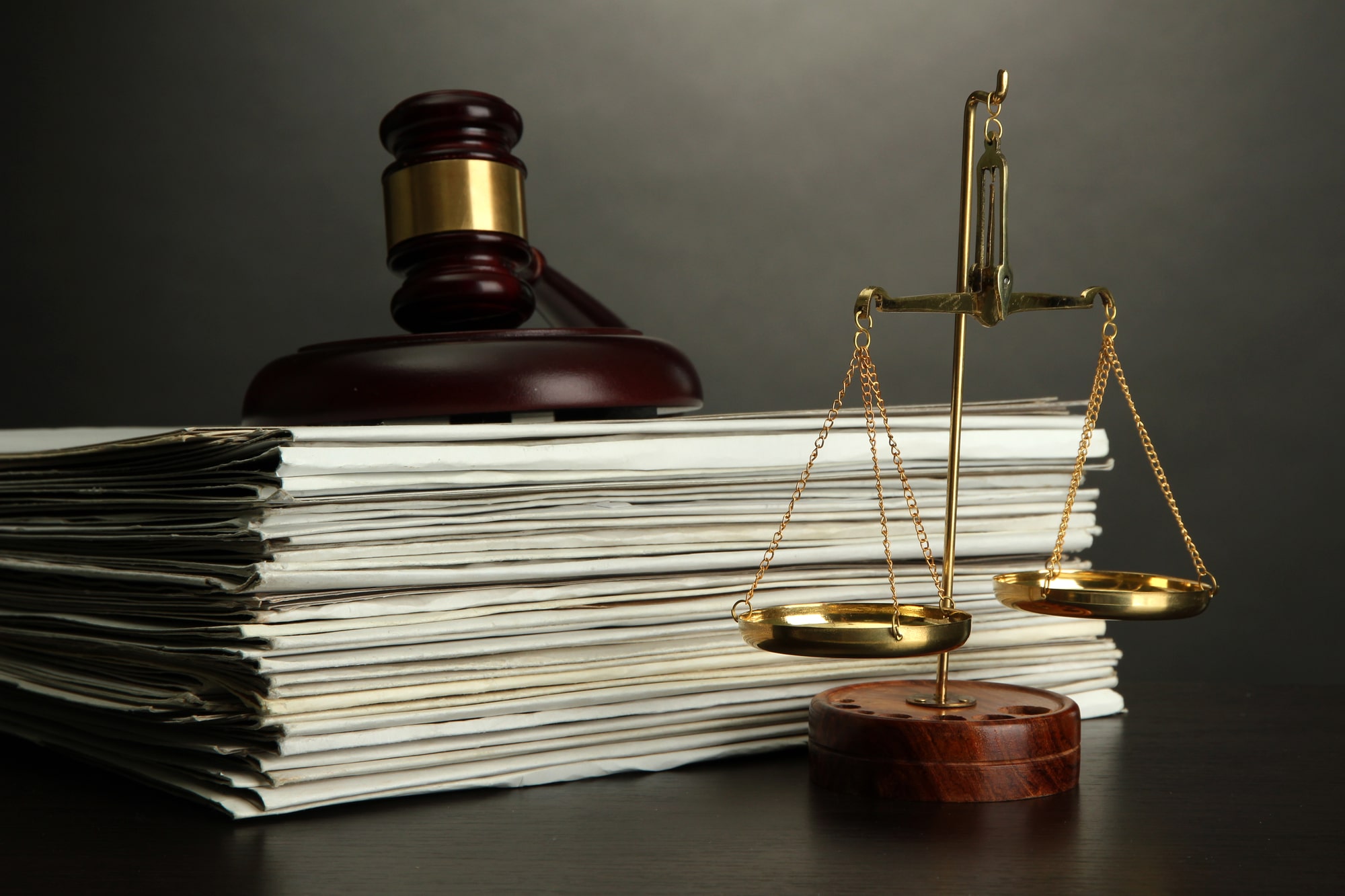24/7 CALL ANSWERING (603) 802-8100
New Hampshire And Maine.
Home » Appellate Practice
Challenging A Lower Court Decision On Appeal
Do you get a second chance if the outcome of a trial is not in your favor? In some cases, yes. New Hampshire law permits parties who lost a criminal or civil case to file an appeal with a higher court, but only under limited circumstances. Our appellate lawyer reviews the entirety of your trial, including the judge’s decisions and moves made by the opposing party (and in some cases, your original lawyer). If we determine that there are grounds for an appeal, we swiftly take action to rectify your situation. Don’t risk your future by simply accepting the court’s decision. Contact Becker Legal today to learn your eligibility for an appeal.
Appellate Lawyer
If you lose your case, you may have a second shot at a different outcome, but only if there were legal errors present in the initial trial. For example, in matters of criminal defense, inadequate representation may be grounds for an appeal. Or, maybe certain pieces of evidence were admitted for a jury’s consideration when the trial judge should have excluded them. Our appellate lawyer reviews each line of the trial transcript and judicial rulings to determine whether there were legal flaws that affected the outcome.
Appealing a case in which a verdict was rendered differs from presenting the case before a jury. The facts are usually cut-and-dried, with little room for interpretation. Our attorneys are meticulous in their attention to fine legal details, and if an error was made, we’ll spot it.
Some of the reasons we may be able to appeal your case include:
- The judge’s decisions contained significant legal errors
- The judge wrongly denied a motion to dismiss the case
- The judge improperly rejected a motion to suppress evidence
- Inadmissible evidence was introduced during the trial
- Critical evidence that should have been presented to the jury was improperly excluded
- A juror who was unfit to serve was allowed to remain on the jury
- The jury did not receive proper legal instructions
- The prosecutor engaged in misconduct that unfairly influenced the jury’s perception
- The judge considered inadmissible evidence during sentencing
We work quickly to determine grounds for the appeal and then file it within the state’s deadline. As your legal advocate, we handle all the matters necessary to rectify the defects in the initial trial, so you can get true justice.
Working With Our Experienced Appellate Lawyer Makes The Difference
If you believe there was a mistake or fundamental error made in your civil or criminal trial, it’s important to speak with an experienced New Hampshire appellate lawyer quickly, as the state sets a 30-day deadline to file an appeal. We bring our considerable legal knowledge to bear, including a deep understanding of state statutes and precedent-setting case law, to bear on your behalf.
- Firm lead attorney, Leif Becker, was named a 2020 recipient of the “Life Changer” award by Haven, the state’s preeminent domestic violence and sexual violence support and prevention agency
- Lief was named to the Union Leader’s New Hampshire 40 under 40
- Members in good standing of the New Hampshire Bar Association
- Leif received the Pro Bono Rising Star Award from the New Hampshire Bar Association
- Our firm’s attorneys are admitted to the First Circuit Court of Appeals
Learn more about grounds for an appeal in your case and your other legal options in a consultation with the Becker Legal team.
Judges don’t always get it right. The law is complex, and there are countless gray areas. That means if a court ruled against you, their decision might not be the end of the road. You may have grounds for overturning it on appeal.
Navigating a successful appeal can be challenging. The law and procedures are complicated. As a result, not all attorneys handle appeals.
At Becker Legal, our appellate law attorney understands the intricacies of this sophisticated area of the law. You can turn to us for trusted representation on appeals involving criminal cases – such as domestic violence and drug crimes – as well as civil litigation. Located in Portsmouth, we handle appeals in both New Hampshire and Massachusetts.
How We Can Help You Pursue A Strong Appeal
To bring a successful appeal, you must have sufficient legal grounds for challenging the lower court’s decision. Those grounds depend on the type of case you have. Examples include:
- Misinterpretation or misapplication of the law
- Violations of certain constitutional rights
- Abuse of discretion (meaning the judge acted outside their scope of authority)
- Ineffective assistance of counsel (in criminal cases, meaning your trial lawyer was incompetent)
- Insufficient evidence (in criminal cases)
Our lawyer can evaluate your case and determine which grounds apply. By conducting a thorough review of the court records, we can pinpoint where the trial court went astray and strategize the strongest grounds for appeal.
Why Appeals Are Different – And Why We’re Well Positioned To Represent You
Unlike at the trial court level, appeals are conducted largely in writing. Your lawyer must have the skill set to prepare persuasive legal briefs for the appellate court at the state and federal level. In cases that involve appearing before the court for oral argument, your lawyer must know how to present a strong position in a high-pressure setting.
When you work with Becker Legal, you can trust that your appeal is in good hands. Our attorney knows how to prepare powerful written briefs, deliver strong oral arguments and navigate complex appellate procedures.
Learn More About Appeals During A Free Consultation
To talk with a criminal defense lawyer or civil litigation attorney about your case, call 603-259-6726 or reach out online. We offer free consultations as well as payment arrangements and affordable flat fees.
Appellate FAQs
Appealing a court decision is a highly strategic process that requires legal precision and thoughtful argument. An appellate lawyer focuses on identifying legal errors from previous court proceedings and advocating for a reversal or modification of the outcome. Whether you’re considering an appeal or responding to one, legal guidance at this stage is critical. You most likely have several questions about this process, which is why we have provided some answers to common questions we encounter below.
What Qualifies A Case For Appeal?
Not every case is eligible for appeal. Typically, there must be a legal error made during the trial, such as the improper admission of evidence, incorrect jury instructions, or a misapplication of the law. Appeals are not about re-trying the case or introducing new evidence but rather reviewing how the law was applied.
How Is An Appellate Case Different From A Trial?
While trial lawyers focus on presenting facts and persuading a jury, appellate cases work with the written record from the trial court to build a legal argument. These lawyers analyze transcripts, rulings, and motions to find issues that can be challenged on appeal. Strong writing and research skills are essential, as appeals rely heavily on briefs and legal precedent.
What Are The Chances Of Success In An Appeal?
Appeal outcomes vary widely depending on the nature of the legal error, the jurisdiction, and the standard of review. Generally, appeals have a lower success rate than trials, but a well-founded argument presented by a skilled lawyer can make a substantial difference. An attorney will help you manage expectations as not every case is eligible for an appeal.
What Documents Are Needed To Start The Appeals Process?
Key documents include the trial transcript, the judgment or final order being appealed, and relevant motions or rulings from the case. The appellate court will also require a notice of appeal and legal briefs outlining the issues. An appellate lawyer can help gather and organize these materials efficiently. They will also guide you on how long this entire process will take.
How Does An Appellate Court Review A Case?
Appellate courts do not hear new testimony or admit new evidence. They review the record from the lower court and evaluate legal arguments presented in written briefs. In some cases, oral arguments are scheduled, during which each side presents its interpretation of the law and answers questions from the judges. The court then issues a written opinion that affirms, reverses, or modifies the lower court’s decision.
Becker Legal serves clients in both New Hampshire and Maine, offering guidance in appellate matters where the stakes can be high and the arguments highly technical. As a member of the New Hampshire Bar Association, our firm demonstrates ongoing adherence to high professional standards in both trial and appellate work. If you’re considering appealing a recent decision, it’s wise to act quickly. Deadlines are often strict, and the appeals process can be intricate. Reach out today to an appellate lawyer discuss whether an appeal is the right step in your legal journey.
PRACTICE AREAS
Free Consultation
Client Review
“Leif is incredibly knowledgeable, professional, and dedicated to achieving the best possible outcome. His attention to detail and strategic approach is truly unparalleled, I would highly recommend him to anyone in need of legal representation, as he provides top-tier legal counsel with a personal touch that truly sets him apart. Five stars all around!”
Joe D.
Becker Legal
Portsmouth Office
1 New Hampshire Avenue
1st Floor
Portsmouth NH 03801
Concord Office
5 Warren Street
Suite 2A
Concord, NH 03301


